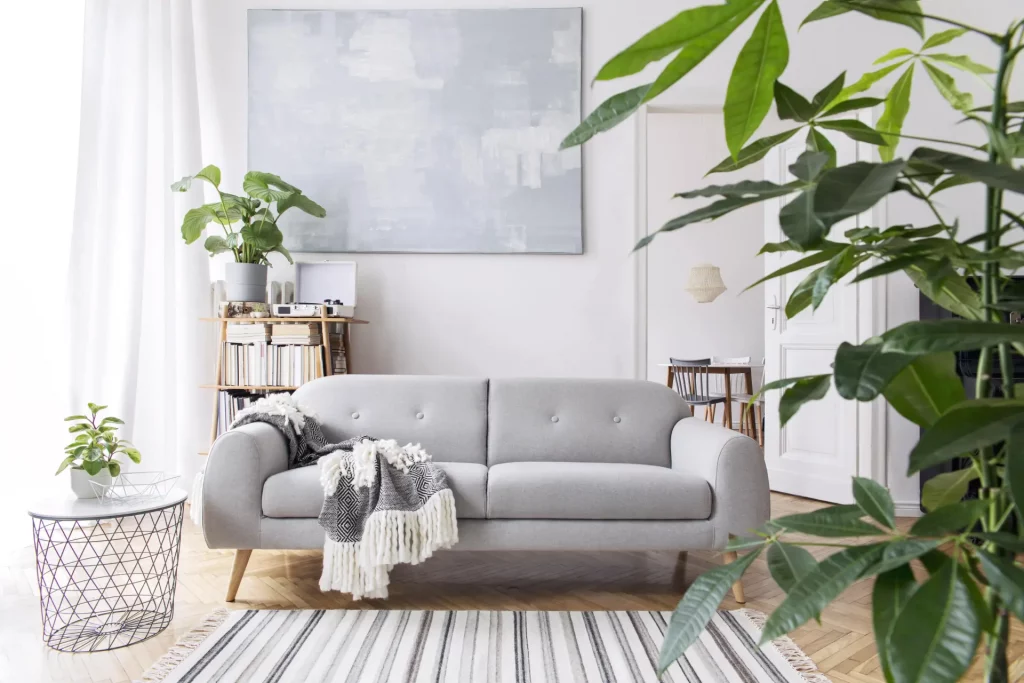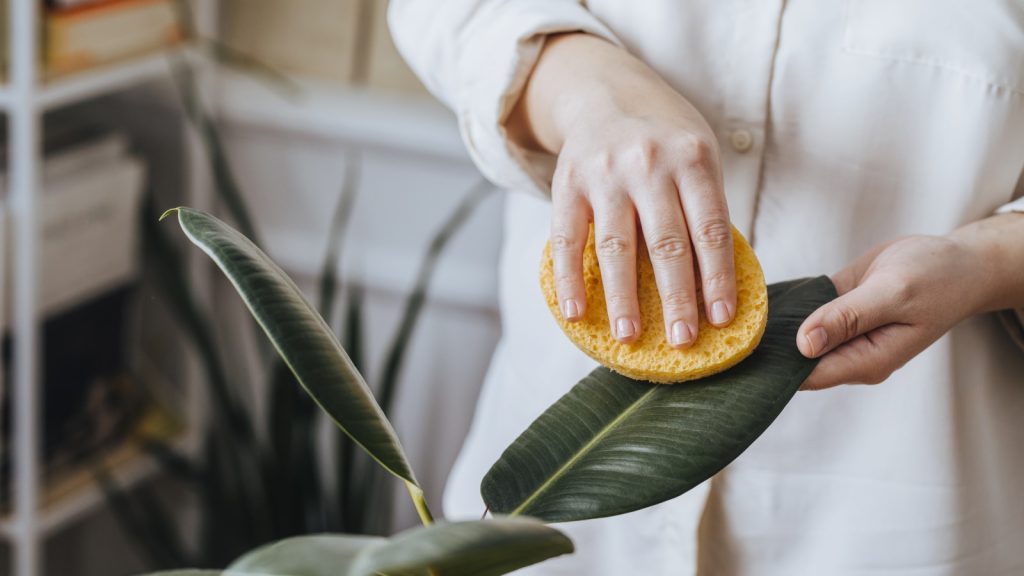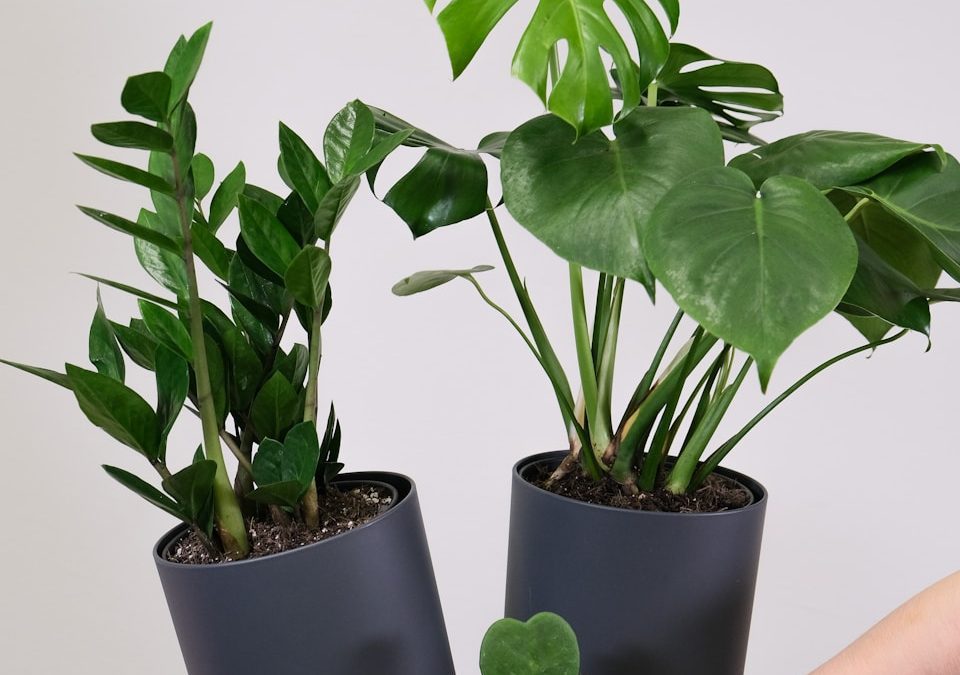Modern life is noisy, busy and often spent staring at screens. Bringing a few indoor plants to reduce stress into your home is one of the simplest ways to soften that feeling. Even a single leafy pot on your desk can make a space feel more relaxed and alive.
In this article you’ll learn how indoor plants can help you unwind, which easy species to choose, and how to arrange and look after them without adding extra hassle. If you’re worried about keeping everything low-effort, you might also like Low-Maintenance Indoor Plants on InsideGardenLife.com.
Contents
- 0.1 How Indoor Plants Help Reduce Stress
- 0.2 Best Indoor Plants to Reduce Stress
- 0.3 Where to Place Plants for a Calmer Feel
- 0.4 Easy Care Routine for Stress-Reducing Indoor Plants
- 0.5 Turning Plant Care into a Relaxing Ritual
- 0.6 FAQs About Indoor Plants and Stress
- 0.7 Final Thoughts on Using Indoor Plants to Reduce Stress
- 0.8 Related Articles
- 1 Discover More Mood-Boosting Indoor Plants
How Indoor Plants Help Reduce Stress
You don’t need a jungle to notice a difference. A handful of well-placed plants can:
Soften hard lines from furniture and screens
Add a sense of life and movement to a room
Encourage you to take micro-breaks as you water or prune
Make air feel fresher, especially in stuffy corners
Research from university horticulture and wellbeing programmes suggests that simply viewing and tending indoor plants can lower perceived stress and improve mood over time.

Best Indoor Plants to Reduce Stress
When you’re aiming for calm, you want plants that are reliable rather than fussy. Here are some beginner-friendly options.
1. Peace Lily
Peace lilies offer glossy leaves and elegant white blooms. They’re great for:
Bright but indirect light
People who prefer a plant that “tells” them when it’s thirsty by drooping slightly
Softening corners and adding a more tropical feel
If you choose peace lilies, just keep in mind they’re not pet-safe, so place them out of reach of curious cats and dogs.
2. Snake Plant
Snake plants are tough, architectural and slow-growing. They’re ideal if you:
Forget to water sometimes
Want a clean, upright look that works with modern decor
Need something that can tolerate slightly lower light
3. Pothos and Other Trailing Vines
Trailing plants like pothos, philodendron and heart-leaf philodendron are perfect for:
High shelves and bookcases
Hanging baskets in bright rooms
Creating that “green drape” effect that feels cosy and relaxed
4. ZZ Plant
ZZ plants have thick stems and shiny, dark leaves. They tolerate periods of neglect and lower light, which makes them good for busy people or slightly dimmer rooms.
5. Small Tabletop Plants
For desks and bedside tables, smaller plants work best:
Mini snake plants
Compact ferns in brighter bathrooms
Small peperomias or fittonias
A compact self-watering pot for desk plants can keep smaller stress-relief plants going for longer between waterings if you’re busy or forgetful.

Where to Place Plants for a Calmer Feel
Placement matters just as much as plant choice when you’re trying to reduce stress.
Create a Calm Corner
Pick one spot to be your “unwind zone”:
A chair by a window
A reading nook
A quiet corner of your bedroom
Group three to five plants of different heights there: a taller floor plant, one or two medium ones, and a trailing plant or two. A small indoor plant stand with multiple tiers makes it easy to stack plants at different heights without using extra floor space.
Soften Hard Work Areas
Desks, kitchen counters and worktops feel calmer with a little greenery:
Place one plant at the edge of your field of vision, not directly in front of your screen.
Use simple pots so they don’t visually compete with everything else.
Keep the plant out of the main “elbow zone” so you’re not constantly knocking it.
Treat Plants Like Little Break Signals
Use watering and leaf-cleaning as small pauses:
Stand up, walk over to your plants and check the soil with a finger.
Take 30 seconds to remove a yellow leaf or wipe a dusty one.
Use that moment to breathe slowly and look away from your phone or laptop.
Easy Care Routine for Stress-Reducing Indoor Plants
Plants that constantly struggle will stress you out instead of helping. Keep things simple.
Light
Aim for bright, indirect light for most foliage plants.
A metre or two back from a bright window usually works well.
Rotate pots regularly so growth stays balanced.
Water
Check soil with your finger rather than watering on a strict schedule.
Most of these plants like the top 2–3cm of compost to dry before you water again.
Water thoroughly, then let excess drain away – don’t leave pots sitting in water.
A soil moisture meter for indoor plants can help you stop guessing, especially with deeper pots and larger floor plants.
Feeding
Use a diluted liquid houseplant feed every few weeks in spring and summer.
Skip or reduce feeding in autumn and winter when growth slows.
Cleaning Leaves
Dusty leaves don’t just look dull; they also photosynthesise less.
Wipe broad leaves gently with a soft, slightly damp microfibre cloth.
For delicate foliage, a quick shower in lukewarm water now and then can help, as long as the compost isn’t soaked for days afterwards.

Turning Plant Care into a Relaxing Ritual
If plant care feels like a chore, it won’t help your stress levels. Try turning it into a small weekly ritual instead.
Put on a favourite playlist or podcast.
Work through your plants one by one: check soil, rotate pots, pinch off dead leaves.
Take a few minutes to notice new growth, new leaves unfurling or buds forming.
You don’t have to do everything in one day. You might water a couple of larger plants midweek and leave the rest for a slower Sunday check-in. The goal is to make plant time something you genuinely look forward to.
FAQs About Indoor Plants and Stress
Do indoor plants really reduce stress?
They’re not a magic cure, but many people find that having and tending plants makes a space feel calmer and more pleasant. Looking after something living can provide gentle routine and small moments of focus away from screens.
How many plants do I need to feel a difference?
You don’t need dozens. Even three to five well-placed plants in your main living area can change the feel of the room. Start small and add more only if you enjoy caring for them.
Are some plants better than others for stress relief?
Plants with softer shapes, trailing stems or gentle flowers often feel more soothing than very spiky or harsh-looking plants. Peace lilies, pothos, ferns, calatheas and ZZ plants are popular choices, but it’s more important that you personally like the look of them.
What if I’m bad at keeping plants alive?
Stick to tougher species like snake plants, ZZ plants and pothos, and keep them in suitable light. Use simple tools like a moisture meter and self-watering pots if you’re worried about over- or underwatering. Everyone loses a plant occasionally – it’s part of learning.
Can indoor plants replace other stress-management habits?
No – think of them as a helpful extra, not a replacement. Good sleep, movement, social connection and, when needed, professional help are all still important. Plants are there to support a calmer environment, not to handle everything on their own.
Final Thoughts on Using Indoor Plants to Reduce Stress
Indoor plants won’t fix every stressful situation, but they can make home feel like more of a refuge. A few well-chosen, easy-care species in the right spots can soften hard edges, add life to quiet corners and give you tiny moments of calm as you water or prune.
Start with simple, reliable plants and aim for a routine that feels gentle rather than demanding. Over time, your indoor garden can become a quiet backdrop that helps you breathe a little deeper whenever you walk into the room.
Related Articles
FEEL BETTER EVERY TIME YOU WALK IN
Discover More Mood-Boosting Indoor Plants
If you’ve started softening your space with a few calming plants, take it further with species chosen specifically to lift your mood. From bright, upright foliage to gentle flowering plants, you’ll find easy options that look good, cope with indoor life, and help your home feel more positive day to day.

